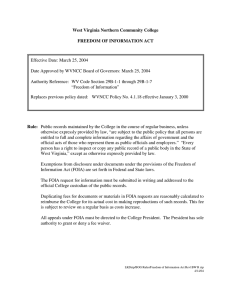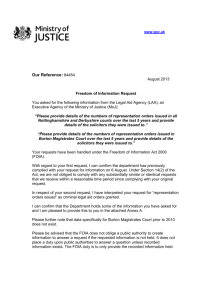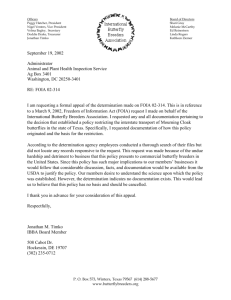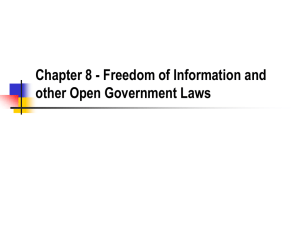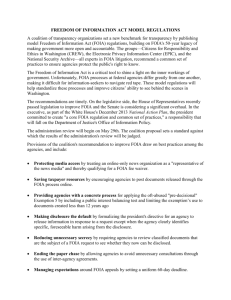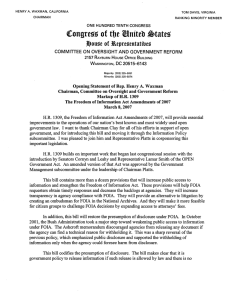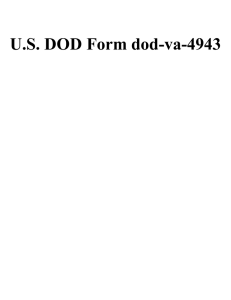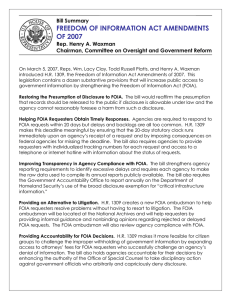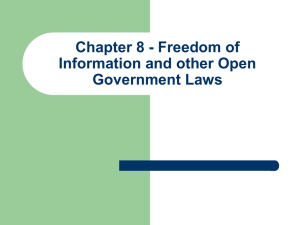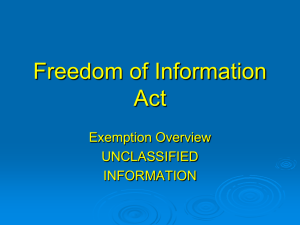Amend Exemption (b)(5)
advertisement
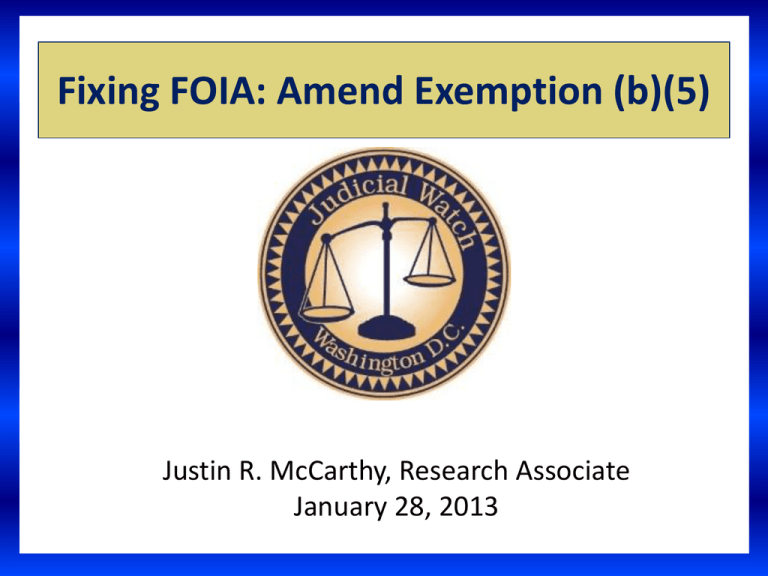
Fixing FOIA: Amend Exemption (b)(5) Justin R. McCarthy, Research Associate January 28, 2013 What is FOIA? Freedom of Information Act (FOIA) 5 U.S.C. § 552 Each agency, upon any request for records…shall make the records promptly available to any person. Exemption (b)(5) Compulsory disclosure under FOIA does not apply to: inter-agency or intra-agency memorandums or letters which would not be available by law to a party other than an agency in litigation with the agency. Civil Discovery Context Parties may obtain discovery regarding any nonprivileged matter that is relevant to any party's claim. Limits as applied under (b)(5) include: Government attorney-client privilege Government attorney work product protection State secrets privilege Deliberative process privilege Fixing FOIA Expressly limit the (b)(5) exemption to: Confidential communications between attorney and client for the purpose of obtaining legal advice; Materials prepared in anticipation of litigation; Mental impressions, calculations, opinions, or legal theories of a party’s attorney or representative concerning litigation; and, Deliberative process material Deliberative Process I. Must be pre-decisional: Prepared in order to assist an agency decision-maker in arriving at a decision, rather than to support a decision already made II. Must be deliberative: Reflects the give-and-take of the consultative process; does not apply to factual information (raw data) on which opinion or recommendatory portion relies III. Must remain confidential Material is not deliberative if the policy at issue is officially adopted, or if the protected information is leaked or otherwise disclosed outside the agency Judicial Watch, Inc. Questions? Call (202) 646-5172 or Write info@judicialwatch.org Because no one is above the law!
